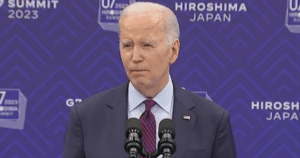Prime Minister Trudeau Reportedly Set to Resign
Prime Minister Justin Trudeau is reportedly planning to step down as early as Monday, according to reports by Canadian media.
Fox News reports that speculation surrounds Trudeau’s upcoming resignation amidst mounting political and personal pressures as Canada approaches its national elections later this year.
Reports from The Globe and Mail, released on Sunday night, indicate that the anticipated resignation may take place before a crucial national caucus meeting this coming Wednesday. With a national election scheduled for October 20, this development adds layers of complexity to Canada's tense political climate.
Challenges Faced by Trudeau's Government
The current environment in Canada is marked by a range of significant challenges. The nation is grappling with issues such as a growing housing crisis, declining per-capita GDP, and high inflation rates. These economic pressures have contributed to the decline in Prime Minister Trudeau’s popularity, as reflected in a December poll by Angus Reid, showing a 68% disapproval rating and only 28% support from Canadians.
Adding to the turmoil, Trudeau recently faced a no-confidence vote in parliament. Initiated by the Conservative Party, the move in September was intended to challenge his leadership. Although the vote ultimately did not pass, it highlighted the growing discontent within the political landscape.
Political Setbacks and Leadership Shifts
In a surprising move last month, Finance Minister Chrystia Freeland resigned from Trudeau's cabinet. Freeland, once considered a Trudeau loyalist, departed on December 16 citing disagreements on the best path forward for addressing Canada’s pressing issues. "For the past number of weeks, you and I have found ourselves at odds about the best path forward for Canada," Freeland noted, alluding to "grave challenges," including a potential tariff war in her resignation letter.
Further political setbacks came as Jagmeet Singh, leader of the New Democratic Party, announced intentions to introduce a formal motion of no-confidence. The motion is planned for presentation in the House of Commons on January 27, reflecting the mounting pressure on the current administration.
Controversies and Criticisms
Prime Minister Trudeau has also faced criticism on a personal front. His decision to attend a Taylor Swift concert in late November while riots unfolded in Montreal drew public ire. Critics, including Toronto MP Don Stewart, were vocal on social media, condemning Trudeau's actions during a time of unrest, remarking that "lawless protesters run roughshod over Montreal in violent protest. The Prime Minister dances."
Trudeau publicly condemned the riots, describing them as "appalling," yet the outcry persisted, painting a picture of discord between government leadership and public sentiment. Stewart's criticism extended to wider concerns, implying that the nation led by Trudeau's government has strayed from its original values, calling for a restoration of "law and order, safe streets and communities in Canada we once knew and loved."
Implications of a Leadership Change
As the day of Trudeau's potential resignation approaches, questions arise regarding the future direction of the Liberal Party. The timing, amidst considerable political and economic challenges, sets the stage for an uncertain road ahead. The resignation, if confirmed, could trigger a significant reshuffling within the party as they prepare for the upcoming election.
This potential shift in leadership might redefine campaign strategies and priorities, as the Liberal Party aims to regain public confidence and navigate through Canada's pressing issues. With parties like the New Democratic Party ready to leverage their growing influence, the political landscape in Canada is set for a pivotal transformation.
Looking Toward the Upcoming Election
In anticipation of the October elections, parties across Canada are likely reassessing their platforms and strategies. Trudeau’s anticipated resignation has introduced a new variable, influencing how campaigns will be conducted in the months to come. The Liberal Party will need to pivot quickly to fill any leadership void and address the core issues that have affected public opinion.
As Canadians await further official announcements, the nation’s political and economic stability remains a key concern. Amidst this backdrop, the need for effective governance and responsive leadership is felt acutely by constituents seeking assurance and progress.
As the Canadian public and political observers continue to monitor these unfolding events, the ultimate impact of Prime Minister Trudeau’s rumored resignation on the country’s immediate and long-term trajectory remains to be seen.




